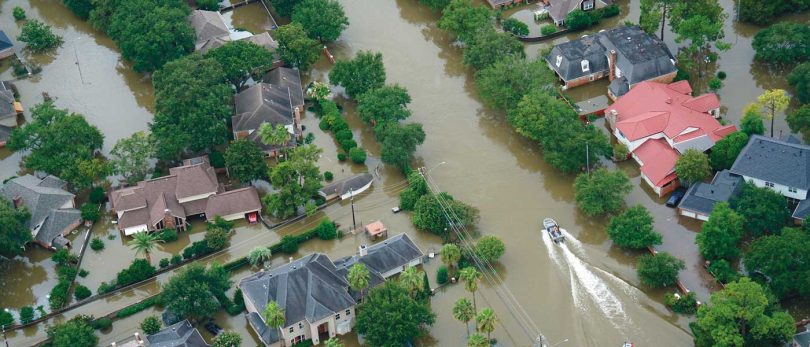After hurricanes ravaged Texas and the Caribbean, REALTORS® learn how best to work with clients who want to buy or sell homes with possible storm damage.
By Daniel Rome Levine
In Houston, says Vicki Fullerton, CRS, the first words out of most homebuyers’ mouths these days are, “Did it flood?”
With good reason. Hurricane Harvey devastated the Houston area in August. According to FEMA, widespread flooding damaged over 170,000 homes and caused nearly $200 billion in damage.
As much as a Houston home seller affected by the hurricane may not want to talk about the damage their property sustained with a prospective buyer, Fullerton says complete honesty is the best and only policy.
“Whether you got an inch of water or it was all the way up to the second story, you have to fully disclose what happened or you can be held liable,” says Fullerton, a broker associate with RE/MAX in the suburb of The Woodlands and chairman of the board of the Texas Association of REALTORS®.
Rebuilding with care
Before listing a damaged home, Fullerton advises clients to try to get it back as close as possible to its condition prior to the hurricane or flood. That means hiring reputable service people to remove whatever parts of the home were damaged, and hiring licensed and bonded contractors to put the house back together again with quality products.
Fullerton advises clients to save all receipts connected to the rehab and to be able to provide them to prospective buyers, as well as contact information for all the contractors who worked on the home. Once the work is complete, a buyer should hire a reputable inspector, Fullerton says, to go over the entire house, with a special focus on taking moisture readings of the walls and floors.
Having done all their due diligence and having put the house back together as carefully as possible, Fullerton says, a seller can now list the property with confidence and not be afraid to answer that inevitable question.
Exhaustive research
In Glen Cove, New York, Jennifer Consolazio, a CRS candidate with Destiny International Realty, has helped clients buy and sell homes damaged in numerous big storms, including Hurricane Sandy in 2012.
She agrees with Fullerton on the importance of transparency. “The main thing to keep in mind is honesty,” she says. “Do not hold back any information, even if it jeopardizes a sale.”
When she gets a listing for a storm-damaged home, Consolazio doesn’t just take the seller’s word for what happened to the property and how they fixed it—she independently researches and verifies it. After all, that’s what a careful buyer is going to do. She says her go-to site is the New York City Department of Buildings. There she can find property information free of charge for all five boroughs related to work permits taken out and if they were approved or if there were violations. She says state and local municipalities around the country should have similar sites.
Once she is confident she has gathered all the information she can on the home, she has a higher level of confidence facing prospective buyers. But even then, she suggests they not only hire an inspector, but also a structural engineer to examine the property.
Counseling distraught clients
On the Caribbean island of St. Croix, Amy Land-de Wilde, CRS, with Coldwell Banker St. Croix Realty, says one of the most challenging aspects she faced after Hurricane Maria struck in September was reassuring buyers who had homes under contract but hadn’t closed or moved in yet. She isn’t a therapist, but Land-de Wilde had to be as empathetic as one can while reassuring clients that St. Croix and their homes would recover.
“The insecurity of moving into a new home after a traumatic event like a hurricane adds another layer of difficulty to what is often an already stressful situation,” she says. 
Disaster bargains
Coleen Katz, CRS candidate, with Weichert, REALTORS®, in Wayne, Pennsylvania, took advantage of Hurricane Sandy to buy a storm-damaged property at a bargain. The one-bedroom condo in Sea Isle City, New Jersey, was a total loss after the hurricane and was rebuilt by the prior owners. Katz felt confident making an offer as the seller’s disclosure laid out in detail everything that was damaged and replaced. In addition, she insisted on receipts for all the work and the names of the contractors so she could check them out herself. Her inspector also gave it the all-clear. The property is in a federally designated flood zone, but that doesn’t bother Katz because the condo association carries flood insurance. Katz bought the property in early 2015 for $155,000. Today, she estimates it is worth close to $170,000, and she has rented it out for two seasons during the summer for $1,000 a week.
To learn what you can do in the immediate aftermath of a crisis, download the FREE recording Before and After the Storm: How You Can Assist Your Customers and Community in the RRC education catalog.








